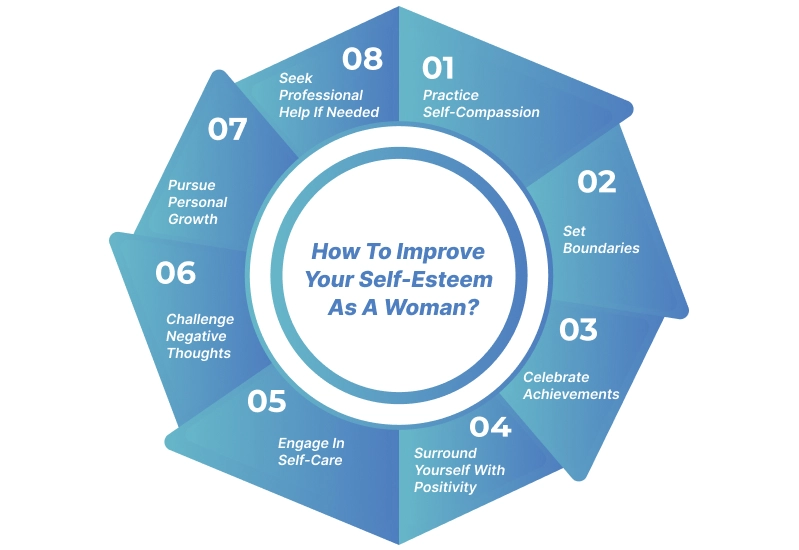
Why Do I Hear Voices in My Head?
Why Do I Hear Voices in My Head? Get Instant Relief Now! Have you ever experienced the sensation of hearing voices in your head? You

Starting a journey of self-improvement is like opening a treasure chest full of limitless possibilities and hidden strengths. Imagine waking up each day with a renewed sense of purpose, eager to tackle challenges with confidence and resilience. By working on yourself, you not only enhance your skills and knowledge but also cultivate a deeper understanding of your own desires and aspirations.
This transformative process can lead to stronger relationships, better mental health, and a more fulfilling life. So, why wait? Take the first step today and discover the incredible potential that lies within you, waiting to be unleashed.
Working on yourself means committing to personal growth and self-improvement by actively pursuing ways to enhance your skills, knowledge, and emotional well-being. It involves a conscious effort to reflect on your habits, attitudes, and behaviors, and then making positive changes to become the best version of yourself. This journey is ongoing, requiring dedication and a willingness to step out of your comfort zone.
Self-worth and self-respect are foundational elements of personal identity and self-importance. Self-worth refers to the intrinsic value you place on yourself, independent of external achievements or validation. It’s about recognizing that you deserve love, respect, and happiness simply because you are you.
On the other hand, self-respect involves treating yourself with dignity and honor, setting boundaries, and refusing to tolerate mistreatment from others. When you have a strong sense of self-worth, you inherently understand your self-importance, which naturally fosters self-respect.
Together, these qualities empower you to make choices that align with your values, pursue your goals with confidence, and build healthy, respectful relationships.
Self-assessment is the crucial first step in working on yourself because it provides a clear understanding of where you currently stand. By evaluating your strengths, weaknesses, values, and motivations, you can identify areas for improvement and set a solid foundation for your personal growth journey.
There are several effective methods for self-assessment:
Establishing a baseline involves documenting your current skills, habits, and behaviors. This might include noting your daily routines, assessing your current job performance, or identifying your stress triggers. Having a clear starting point allows you to measure your progress accurately as you work on yourself.
Setting SMART goals is essential for effective personal development. SMART goals are:
Balancing short-term and long-term goals helps maintain motivation and ensures continuous progress. Short-term goals provide immediate targets and quick wins, while long-term goals keep you focused on your broader vision and ultimate aspirations.
To inspire readers, here are a few examples of personal goals:
Identify which skills will most benefit your personal and professional growth. This might include technical skills relevant to your career, soft skills like communication and leadership, or personal interests like cooking or playing a musical instrument.
There are numerous resources available to aid skill development:
Consistent practice is key to mastering new skills. Dedicate regular time to practice and be patient with the learning process. Persistence and repetition will lead to improvement over time.
The science behind habit formation suggests that it takes about 21 days to establish a new habit. Start small, focus on one habit at a time, and use triggers to remind you to perform the new habit.
Some positive habits to consider include:
Use tools like habit trackers or mobile apps to monitor your progress. Recording your activities helps maintain accountability and provides motivation as you see your habits solidify over time.
Introduce mindfulness practices and the benefits of meditation. Regular mindfulness practice can reduce stress, improve focus, and enhance emotional well-being.
Professional help, such as therapy or counseling, plays a vital role in maintaining mental health. It provides a safe space to explore your thoughts and feelings and develop coping strategies for life’s challenges.
Offer practical tips for managing stress, such as deep breathing exercises, regular physical activity, and maintaining a balanced lifestyle. Additionally, encourage practices like time management, prioritizing tasks, and taking regular breaks to prevent burnout.
Healthy relationships are crucial for personal growth as they provide support, encouragement, and a sense of belonging. Building strong connections with others enhances your emotional well-being and helps you navigate life’s challenges.
Improving communication skills is essential for maintaining healthy relationships. Focus on active listening, expressing yourself clearly, and practicing empathy to understand others’ perspectives.
Encourage readers to network and socialize to build a support system. Engaging in social activities and attending networking events can help you meet like-minded individuals, expand your horizons, and gain new opportunities.
Continuous Learning and Adaptation
Highlight the importance of being a lifelong learner. Continuously seeking new knowledge and experiences keeps your mind sharp, broadens your perspective, and enhances your adaptability in a rapidly changing world.
Discuss the necessity of being adaptable. Embrace change as an opportunity for growth rather than a threat. Developing resilience and flexibility will help you navigate uncertainties and thrive in new environments.
Regularly seeking feedback and reflecting on your progress is vital for continuous improvement. Constructive feedback helps identify areas for development, while reflection allows you to celebrate achievements and plan for future growth.
Feeling more confident starts with cultivating a positive mindset and practicing self-compassion. Begin by acknowledging your strengths and achievements, no matter how small they may seem. Setting and achieving small, manageable goals can boost your self-efficacy and gradually build your confidence.
Embrace positive self-talk and challenge negative thoughts by focusing on your abilities and potential. Additionally, stepping out of your comfort zone and facing new challenges head-on helps you grow and reinforces your belief in your capabilities.
Surround yourself with supportive and encouraging people who uplift and inspire you. Remember, confidence is a skill that develops over time through consistent effort and self-acceptance.

Improving self-esteem as a woman involves nurturing a positive self-image and embracing your unique qualities. It starts with self-acceptance and recognizing your inherent worth, irrespective of societal standards or external validation.
Building self-esteem is an ongoing process that requires self-reflection, setting healthy boundaries, and celebrating your achievements, both big and small. By practicing self-compassion and prioritizing self-care, you can foster a stronger, more confident sense of self.
Understanding how to work on yourself is a transformative journey that involves continuous self-assessment, goal setting, skill development, and cultivating healthy habits. By prioritizing self-care, improving your mental health, and building strong relationships, you can enhance your overall well-being and personal growth.
Remember, the path to self-improvement is unique for everyone and requires patience and perseverance. Embrace the process, celebrate your progress, and remain committed to becoming the best version of yourself.

Why Do I Hear Voices in My Head? Get Instant Relief Now! Have you ever experienced the sensation of hearing voices in your head? You

Understanding Bipolar 1 vs. Bipolar 2: A Comprehensive Guide Get Instant Relief Now! Bipolar disorder is a complex mental health condition characterized by extreme shifts

Living with BPD: How Does a BPD Episode Look Like? Living with Borderline Personality Disorder (BPD) poses unique challenges as individuals navigate through intense emotions
